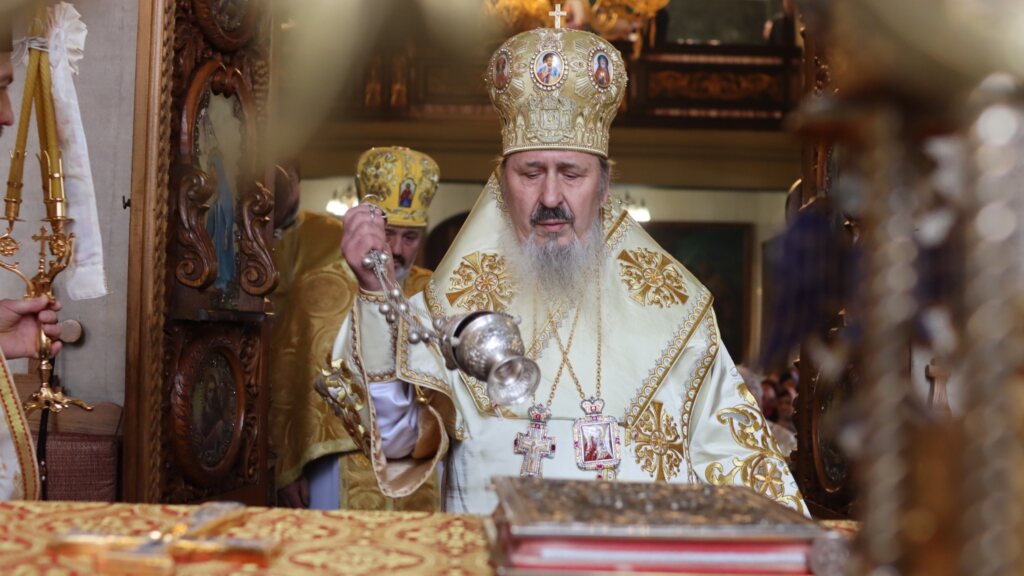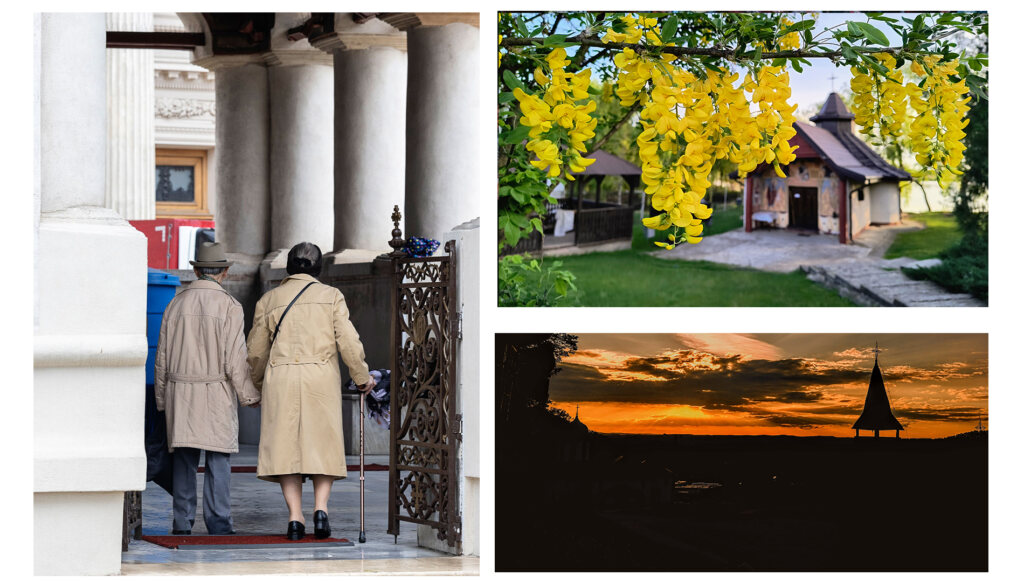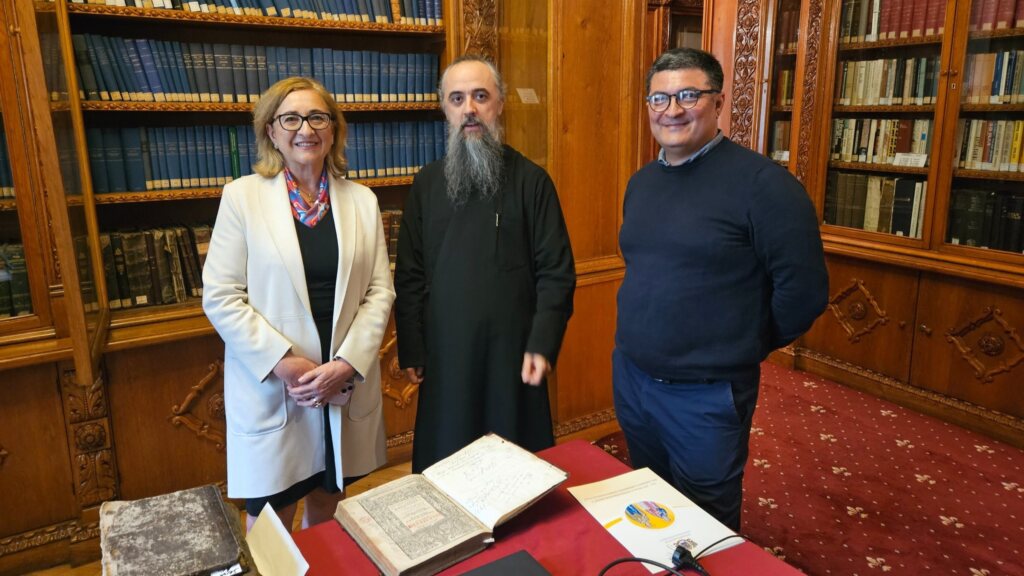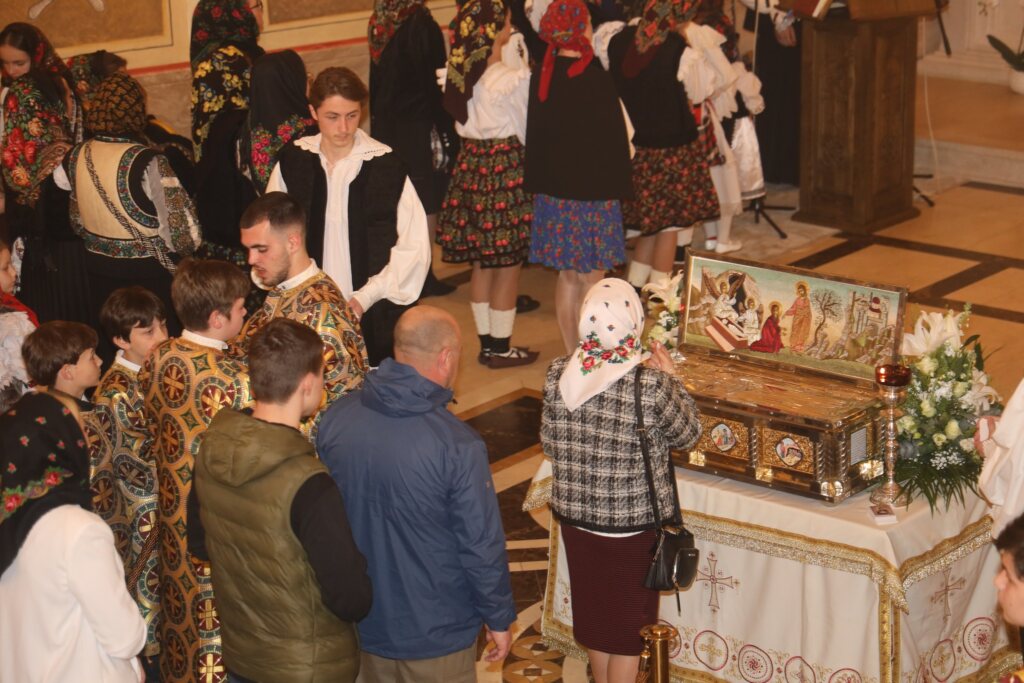The Holy Synod of the Romanian Orthodox Church has issued a pastoral letter on the first Sunday of the Nativity Fast recalling that the Romanian people bears the ‘seal of the mystery of Christ’s Cross and Resurrection.’
‘The luminous fruit-bearing of Christ’s Gospel in the history and culture of the Romanian people is observed in the gift of national unity, freedom and dignity, gained through strong faith and sacrificial struggle over many ages of Christian suffering,’ the hierarchs point out.
In the 1918 Great Union Centennial, ‘we must highlight that the Greater Romania is also a work of the Romanian Orthodox Church, which in all its history has defended the unity of faith of Romanians, and implicitly has cultivated the consciousness of national unity.’
The members of the Holy Synod noted that ‘the consciousness of national unity always combined with national unity.’
‘The Romanian Orthodox Church had a major contribution to the promotion of the consciousness of the spiritual unity of the Romanian people.’
The hierarchs recalled the close ties between the Metropolises of Moldavia, Wallachia and Transylvania and the role played by spreading church books in the Romanian language.
They quoted national poet Mihai Eminescu who called the Orthodox Church ‘the spiritual mother of the Romanian nation, who gave birth to the unity of language and the ethnic unity of the people.’
‘The Divine Liturgy celebrated in Romanian language in all provinces inhabited by Romanians has, therefore, become a factor of spiritual unit at a national level,’ developing national identity and consciousness, as well as Romanian culture, the document reads.
‘The Romanian language and Christian faith are two fundamental components of the essence and identity of the Romanian people,’ the hierarchs noted.
‘The Romanian Orthodox Church has always loved and served the Romanian people, has blessed its aspirations for freedom and unity, and has participated in the most significant moments of the national history, such as the 1859 Union of the Romanian Principalities, the gaining of Romania’s state independence (1877-1878), and the 1918 Great Union.’
The document reminds that the Romanian state formed in 1918 through the union with Bessarabia, Bukovina and Transylvania was internationally recognized through the Trianon Treaty.
Although due to hardships of history some Romanian territories ‘were later separated from the country’s body, brothers cannot be separated by borders and barbed wire fences, and the feelings of love and brotherhood cannot be suppressed.’
‘Romania has to keep its identity and promote its spiritual symbols and values,’ the hierarchs urged.
‘Only a better knowledge of its national identity and dignity can help a people develop and persist in history, engaging in a dignified and creative dialogue with other peoples.’
‘It is essential to highlight fundamental elements of the Romanian identity in order to convey the world a positive message regarding Romania and the ethos of the Romanian people, in its dialogue with the other nations of the world.’
The hierarchs also referred to the construction of the National Cathedral as a symbol of the unification of Romania, realized by the will of the people, the sacrifice of Romanian soldiers, and the work of divine providence.
The pastoral letter evokes the names of the supporters of the Romanian People’s Salvation Cathedral such as Patriarch Miron Cristea, national poet Mihai Eminescu, writer Ioan Slavici, and the royal family of Romania.
‘The Romanian People’s Salvation Cathedral ‘symbolically combines the love of God of a Christian, sacrificial, and generous people with the thankfulness we permanently owe to the national heroes.’
The hierarchs remind the believers that the National Cathedral will be consecrated on November 25, 2018, in close connection with the occasion of the 2018 Solemn Year of the unity of faith and of nation.
In conclusion, the Romanian hierarchs stress the need to give alms especially during the Nativity Fast, thus receiving joy and humility, ‘filling your heart with the presence of the Compassionate God.’






